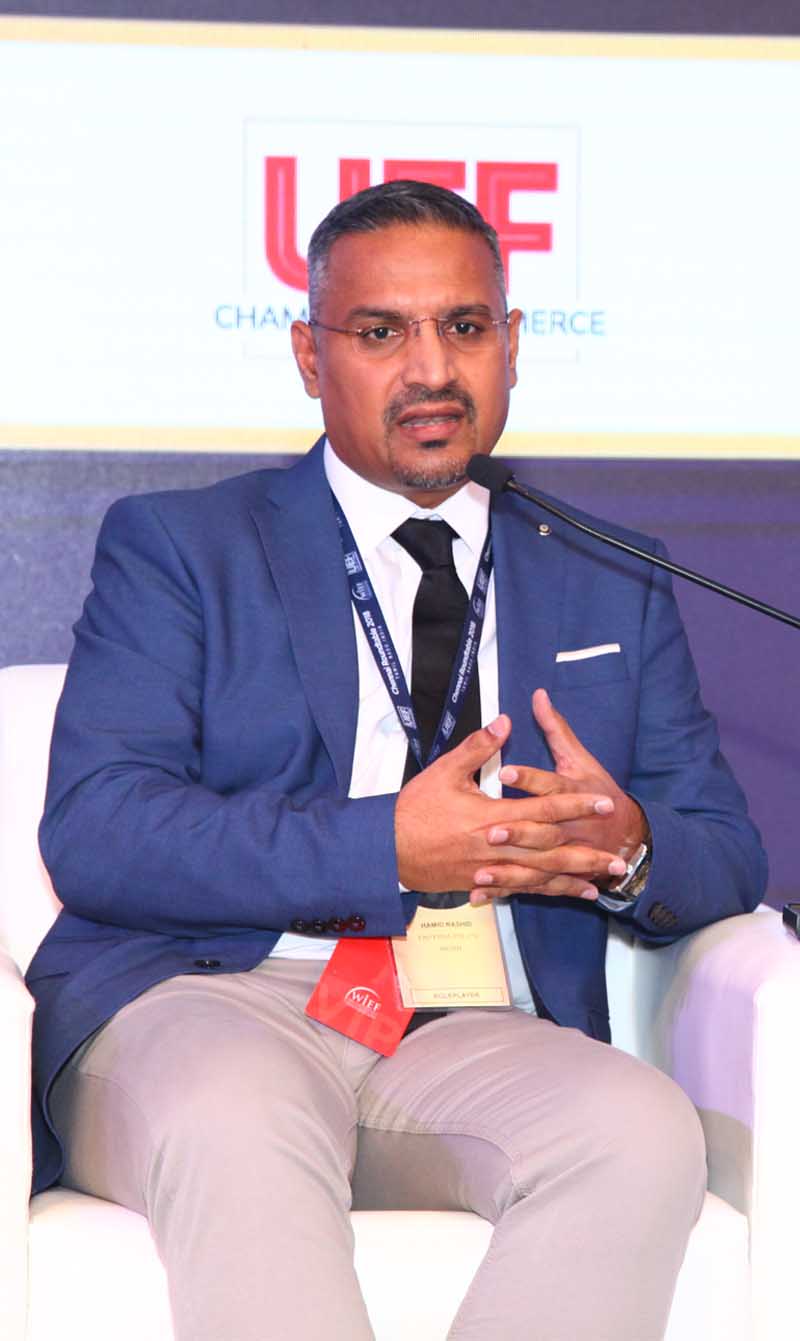Shifts in Islamic finance
Strategic shifts are taking place within Islamic banking today and to address this, Mobasher Zein Kazmi of RFi Group, outlines their view on how the industry is evolving.
If you look at the size of the Islamic finance industry today, which is projected to have exceeded USD2 trillion, this represents only a fraction of all global financial assets. The implication is clear that Islamic finance has significant potential and room to grow. Its role within the international financial system is to provide market participants with alternative options for financing or investment.
The industry must leverage its key value proposition that Islamic finance is linked with the real economy and shariah based products, contracts and transactions are underpinned by tangible assets. Therein lies its appeal, which needs to be continuously highlighted and underscored.
According to RFi Research, the global average of Islamic banking share of assets across 16 key Islamic finance markets in the Middle East, North Africa and South Asia region (MENASA) has reached 30 per cent, bolstered by jurisdictions such as Iran, Saudi Arabia and Qatar. This will likely rise further as the strategic roadmaps of the United Arab Emirates (UAE), Malaysia as well as Indonesia are rolled out and implemented.
Similarly, Islamic finance has begun to make inroads in the west but these initiatives are few and far between, and its impact relatively localised or segmented. For Islamic finance to gain traction it’ll require a concerted effort on educating the average customer, given that a general lack of understanding of how Islamic finance works, exists.
The one standout remains is the United Kingdom, which has more shariah compliant providers than any other western country. It’s the first non-Muslim country to issue a sovereign sukuk (Islamic bond). In this regard, the institutional support provided by the United Kingdom government is highly commendable.
Strategic shifts taking place within Islamic finance
While the Islamic finance industry remains dynamic and vibrant the industry is increasingly recognising the need for greater innovation in product development and structuring as well as standardisation of contracts. We’re also seeing a gradual shift away from shariah compliant products to shariah based ones as Islamic banks look to diversify their service offerings and balance sheets.
Increasingly, Islamic finance is also being serviced to support the emerging global Islamic economy that mandates halal (permissible) fashion, food and travel. Thus, becoming an enabler for halal lifestyle. If we are to consider retail banking specifically, data from RFi’s Global Islamic Banking Council 2017 indicates that at a baseline level, one in two customers hold at least one sharia compliant product in Malaysia, Saudi Arabia, Indonesia and the UAE. At a retail level Islamic products and services are beginning to take root in these commercially sensitive markets.
Another favourable development has been the issuance of green sukuk that seeks to encourage investments in environmentally-sustainable projects, the recent sovereign green sukuk issuance by Indonesia is a case in point. The role that Islamic microfinance has started to play towards financial inclusion in Indonesia, Pakistan and Egypt must also be recognised as these countries continue to work towards poverty reduction and social uplift.
Elements influencing shifts in Islamic finance
Fundamentally, we’d attribute this to end users of Islamic financial services be they retail or corporate, especially in key Islamic banking markets in Southeast Asia or the Gulf Cooperation Council (GCC).
There’s an acknowledgement, at least by a section of the Islamic finance customer base, that imitation of conventional products is no longer tenable. In Malaysia for instance, RFi Research reveals that while 87 per cent of the total banked population is open to the idea of subscribing to Islamic banking products or services, 45 per cent of these customers would only choose Islamic banking products and services, suggesting that shariah compliance is fast becoming a key consideration for banking product take up.
Value-based intermediation has become a need of the Islamic finance market and regulators such as Bank Negara Malaysia have demonstrated bold and visionary thinking by introducing relevant measures to facilitate value creation and enable the industry to transform itself as agents of change.
Strategic shifts within Islamic finance in the next decade
The next decade in Islamic finance will be a period of consolidation in the industry. We believe that mega mergers will materialise in different key markets both within Islamic banking and possibly takaful sectors. The business model of Islamic banks will necessitate mergers and acquisitions to enable sustainability and competitiveness of shariah banks with their competitive peers.
We also believe that shariah governance will become a key area of focus for regulators as central banks seek to introduce comprehensive frameworks that will encompass all functional areas of shariah compliant financial institutions.
There’ll be continued standardisation and harmonisation of business practices of Islamic financial institutions. Also, enhanced oversight by regulators in terms of certification of shariah-compliant companies, shariah screening criteria, functions and responsibilities of shariah advisers, external and internal shariah audit, and application of accounting, auditing and governance standards. Mitigating any perceived shariah risk especially on compliance issues will be essential to address concerns of market participants.
From a customer standpoint, we’re expecting to see a continuous build- up of brand affinity with Islamic products. Based on RFi Research, Islamic banking product holders are more likely to advocate for their Islamic provider than conventional product holders. This is primarily being driven by customer service but the opportunity to segregate funds is fast proving to be of significance for customers in Southeast Asia.
Evolution of Islamic finance and the economy in the past decade
The nascent Islamic banking industry came of age during the Global Financial Crisis (2007-2009) emerging unscathed and resilient. While the undercurrents of the Global Financial Crisis reverberated across the international financial architecture, Islamic banking assets grew rapidly as excitement and interest in shariah compliant products began to take shape. Both retail and corporate borrowers looking for stable and committed partners began to take the Islamic banking proposition seriously, creating enormous opportunity for growth in this segment.
However, the exuberance has tempered off in recent years. Partly due to low oil prices in select markets and also due to the lack of scale of Islamic banks that strained operational profitability, thereby limiting expansion. Having said that, the industry continues to hold momentum and based on RFi Research, the 3-year Compound Annual Growth Rate (CAGR 2014- 2016) growth of Islamic banking assets was a stellar 10 per cent buoyed by Qatar, the UAE and Turkey.
Forecast on the next big steps for Islamic finance
The focus for the Islamic finance industry remains on offering products and services built on the universal values of ethics, sustainability and social responsibility while contributing to economic welfare.
According to RFi Research, the strengths of Islamic banking providers lie in their ability to provide an ethical way of banking, quality shariah explanation and prompt resolutions to queries, while contributing to overall community welfare and development.
Certainly, products developed should continue to provide returns that are competitive to those offered by its conventional cousins while incorporating appropriate risk management. Islamic finance is well positioned to become the go-to universal provider of choice for all consumer segments.
Contribution of Islamic fintech to inclusive growth
The Islamic finance industry has been relatively slow in partnering or collaborating with new fintech players compared with their conventional peers. There are some positive signs, however, in terms of new startups launched and funding received for these ventures both in the GCC and Malaysia. The stumbling block is really around the lack of standardisation, processes and potential contracts that would underpin those transactions.
The announcement late last year in Bahrain by KFH Bahrain, Al Baraka Banking Group and Bahrain Development Bank on establishing a dedicated company to research and develop in the sharia compliant fintech sector, is a step in the right direction. RFi’s view is that, Islamic fintech has vast untapped potential waiting to be realised, not only in driving financial inclusion in Muslim geographies but also improving operational workflow of Islamic banks. The industry must either embrace this transformation or fear being left behind.
About the author
Mobasher Zein Kazmi (MBA, CDIF) is an Islamic banking thought leader and subject matter expert. He previously served as Consulting Director – Asia for global financial services intelligence firm, RFi Group, and was Head of Research at strategic intelligence provider, The Asian Banker. Mobasher has an extensive publication record and written on numerous Islamic banking and finance topics, for a range of media publications in the GCC as well as Southeast Asia.
___________________
More on Islamic finance, in particular shariah-compliant investment opportunities in India during WIEF-UEF Chennai Roundtable 2018 at Hotel ITC Grand Chola, Chennai in India, on 10 Nov 2018. Register your interest and programme details, here.
Photo by Engin_Akyurt on Pixabay





